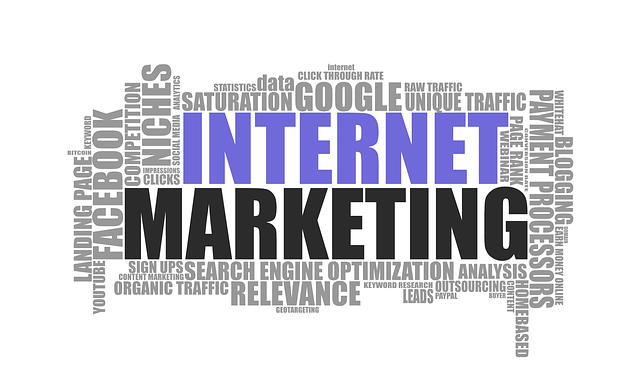In today's dynamic world, Agile project management tools like Google-optimized platforms are crucial for success. Agile embraces flexibility, enabling faster value delivery and adaptive learning experiences through iterative progress and AI applications. This approach fosters critical thinking, enhances collaboration between educators and students using Google's innovative tools, and prepares students for future challenges in diverse team dynamics. In business, agility provides a competitive advantage, allowing organizations to swiftly adjust strategies based on market demands, customer needs, and real-time feedback, thus staying ahead of the competition.
In today’s dynamic business landscape, agility in project management is more crucial than ever. This article explores why adaptability is a key success factor, highlighting how agile methodologies like Scrum and Kanban empower teams to thrive in an ever-changing environment. We’ll delve into the benefits of enhanced collaboration, improved project outcomes, and future-proofing strategies, all backed by actionable insights for maximizing efficiency on Google’s top search terms.
- Adapting to Change: Agile's Core Advantage
- Enhanced Collaboration: Teamwork Triumphs
- Agility Drives Project Success Stories
- Future-Proofing: Staying Ahead of the Curve
Adapting to Change: Agile's Core Advantage

In today’s fast-paced world, where change is the only constant, project managers need tools that enable them to navigate uncertainty with ease. This is where Agile steps in as a game-changer. The core advantage of Agile lies in its ability to adapt to change efficiently and effectively. Unlike traditional project management methodologies that stick to rigid plans, Agile embraces flexibility, allowing teams to respond swiftly to new requirements, market shifts, or unforeseen challenges.
This adaptability is particularly crucial for projects dealing with dynamic environments, such as those involving software development, marketing campaigns, or even educational initiatives like cultural sensitivity training for students and information literacy skills assessment. By prioritizing iterative progress and continuous improvement, Agile enables teams to deliver value faster, making adjustments along the way based on feedback and learnings from previous cycles. This approach not only ensures projects stay relevant but also fosters a culture of critical thinking exercises within the team, mirroring the spirit of language learning apps review that thrive on adaptability and constant refinement.
Enhanced Collaboration: Teamwork Triumphs

In today’s fast-paced and dynamic learning environments, enhanced collaboration among educators and students is more crucial than ever before. Google’s innovative tools have revolutionized how teams connect and communicate, fostering seamless teamwork even in diverse settings. By embracing agility in project management, teachers can create a supportive ecosystem where every student feels empowered to contribute. This collaborative spirit not only enhances knowledge retention but also encourages the development of vital skills like effective communication and conflict resolution strategies for students.
Moreover, integrating virtual reality in classrooms opens up new avenues for interactive learning experiences. Agility allows educators to adapt teaching methods to suit individual student needs, ensuring that everyone stays engaged and motivated. For instance, finding us at AI applications in education can provide innovative solutions, making learning fun and effective. Students who learn together, resolve challenges as a team, and cultivate strong study habits through collaboration are better equipped to face real-world problems, ultimately preparing them for future success beyond the classroom—be it improving their virtual reality skills or mastering effective study habits.
Agility Drives Project Success Stories

In today’s fast-paced business landscape, success often hinges on an organization’s ability to adapt quickly to changing market demands and trends. This is where agility in project management becomes a game-changer. Agility refers to the flexibility and responsiveness that allows teams to adjust their strategies, tactics, and processes on the fly, ensuring they stay aligned with evolving goals and customer needs. When coupled with effective communication and collaboration tools, like those offered by language learning apps review, agile methodologies empower teams to deliver high-quality results promptly.
Consider the success stories of many tech giants who have embraced agility in their project management approaches. By adopting agile practices, these companies have been able to introduce innovative products to market faster, respond swiftly to competitor moves, and continually improve based on customer feedback. For instance, cultural sensitivity training for students can be seamlessly integrated into agile projects, ensuring that teams understand and respect diverse backgrounds, thereby enhancing overall team dynamics and project outcomes. This adaptability is crucial in today’s globalized world where business operations often span across multiple regions and cultures. Visit us at language learning apps review anytime to explore how the right tools can drive these success stories further.
Future-Proofing: Staying Ahead of the Curve

In today’s rapidly evolving business landscape, agility in project management is more crucial than ever before. Staying ahead of the curve isn’t just about adapting to changes; it’s a strategic approach that future-proofs projects and organizations against unforeseen challenges. Google trends reveal a consistent surge in search queries related to dynamic strategies, highlighting the global recognition of agility as a competitive advantage. This shift from traditional, rigid methodologies to agile practices empowers project managers to make swift decisions, accommodate new ideas, and continuously refine approaches based on real-time feedback loops.
Agility allows teams to embrace change with a strategic mindset rather than reacting in panic. By fostering an environment where adaptability is the norm, projects can navigate unpredictable market shifts, consumer preferences, and technological advancements. This proactive approach isn’t just beneficial for established enterprises; it’s essential for startups aiming to leave their mark in highly competitive sectors. Incorporating agile methods into project management strategies allows for a dynamic, responsive, and forward-thinking approach—a stark contrast to the rigid structures of historical essay topics that once dominated industries. Special education resources for teachers can also utilize these principles to create inclusive classrooms where every learner is supported through personalized, adaptable learning experiences. Visit us at inclusion in classrooms definition anytime to explore more on this transformative approach.
Agility is not just a buzzword; it’s a game-changer in project management. By embracing adaptability, enhanced collaboration, and a focus on continuous improvement, agile methodologies empower teams to navigate change effectively, deliver successful projects, and future-proof their work. In today’s fast-paced digital era, where change is the only constant, agility becomes a powerful tool for staying ahead according to Google’s project management trends. Remember that, in contrast to traditional approaches, agility prioritizes flexibility, responsiveness, and customer satisfaction, making it an indispensable asset for any successful project endeavor.

Leave a Reply